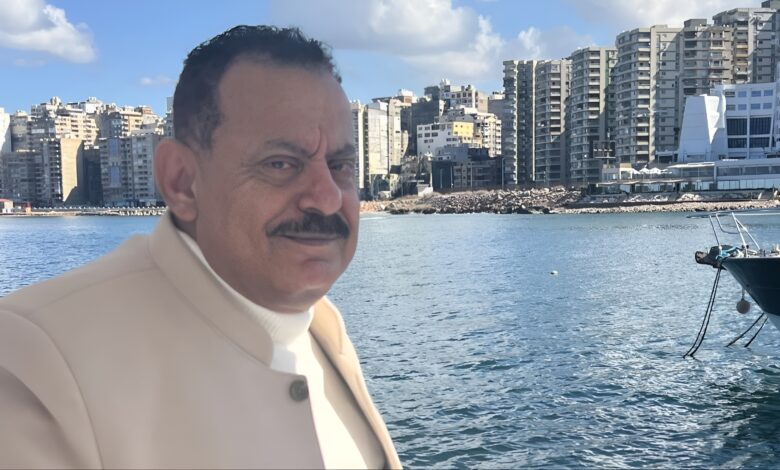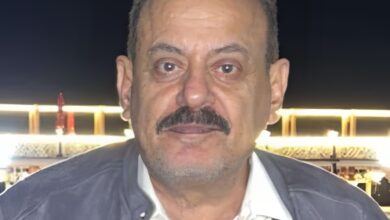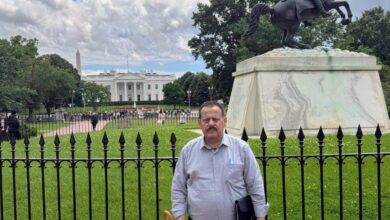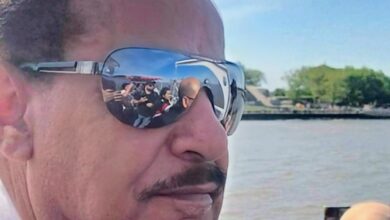An Eid Saturated with Disappointment

Yemeni mp
Ahmed Saif Hashed
Children and young boys rejoice during the great Eid, a celebration long awaited with patience that nearly runs out on the eve of its arrival.
It is welcomed in the early morning with overflowing joy, filling the world with delight. However, my Eid that year was overshadowed by sorrow, reminiscent of an orphanage mourning a mother who has departed, leaving her young behind. A profound sense of orphanhood gripped me; it felt as if fate had marred the occasion, darkening its essence.
My Eid was burdened by my mother’s distress, as she was at her family’s home, overwhelmed by growing troubles and conflicts that exceeded all endurance. This Eid felt distant from her, a foreignness that enveloped me in grief and loss. I sensed a deepening disappointment swelling within me, reaching a point where it felt unbearable.
Loneliness, estrangement, and sadness cohabited within me on a day that should have brimmed with joy and happiness. On Eids, children adorn themselves in festive attire; joy sparkles in their eyes like birds, their faces illuminated with light.
Yet, the stillness, monotony, and frowns of the rest of the year were only broken by the Eid’s cheer, torn apart by the bursts and flashes of fireworks. The joy of the Eid should saturate the soul, as weary hearts await the morning festivity, only to be met with a cascade of happiness. Yet, my situation soured and was marred by fate.
This Eid was gloomy, affected not only by my mother’s absence but also by the slander of our neighbor’s son, who claimed that I stole “the fireworks” from my father’s shop.
I longed to escape to my mother, who had left my father a few days before the Eid to return to her family’s home. However, I still remembered the last time my father forced me back from my attempt to flee, dragging me by my ear along the long road.
Not content with merely pulling me by my ear, my father wedged a stone between his fingers and my earlobe, pressing it painfully as he dragged me with a tilted face, as if he were suffering from a neck ailment.
Whenever the pain in my right ear became unbearable, feeling as if it might be torn from its place, I would ask him to shift his fingers and the stone to my other ear! He would comply with my request gently, contrary to his usual demeanor, yet he never loosened his grip on my ear or the stone I imagined had pierced my earlobe.
The moments between this shift and that due to the pain blurred the distinction between my ears, with the pain swelling from my ear to my face and beyond, stinging my head like the lash of a tormentor.
Sometimes, over a trivial issue, smaller than a chickpea, my father would ignite a war against me; at least that’s how I perceived his severity. I might seem exaggerated here, but the impact of what happened resonated deeply within my sensitive soul, my young age, and the tenderness of my earlobes, leading me to believe it was comparable to what I described.
* * *
Despite everything, I still harbor love, respect, and understanding for my parents. Yet this has not quelled my rebellion; I remain a rebel to this day, having crossed the threshold of sixty years, perhaps now approaching the age of maturity.
One of my colleagues in Sana’a, whose kindness and concern I appreciate, surprised me during a recent mourning occasion by looking for my ear to pinch it, and indeed pinched it while saying in a tone filled with concern and bitterness:
“I’m tired of defending you… the president has it in for you… your files are ready… just sign, men.”
I trust this friend’s affection and the sincerity of what he said, and I will continue to cherish him. However, I could not promise him anything that would appease my conscience or return from my rebellion, nor from the rejection and defiance I have lived throughout my life. I resolved that I would remain this way, at any cost, until the inevitable end, which now seems to be drawing near.
Some of my peers claimed that what happened was a grave insult, but I defended my friend and rebelled against my peers as well, against their perception of the matter as if that insult warranted retaliation. I defended him passionately, just as I defend my father today, considering it a matter of affection and vigilance.
As for my rebellion against the status quo, I decided to continue until it is rectified, for “the apothecary cannot fix what time has spoiled.” Thus, my refusal and rebellion will persist until the end that I no longer dread approaches.
* * *
Perhaps, without realizing it, I provoked my father. What irked him the most was not seeing me plead for his mercy. For him, my refusal to seek his compassion signified that I was challenging him, defying his authority, and diminishing his revered status.
Not addressing his affection meant to my father that I was daring to confront him, which stirred his anger and resentment. Such behavior was significant to him, a deep challenge to his authority and a call to restore his esteem. If he called me for something and I hesitated to respond, it felt to him as if demons possessed him, with a thousand spirits weighing down upon him.
On that Eid , due to my silent protest over my mother’s absence, my reluctance to obey him, and the slander surrounding the fireworks that ignited the tension between us, he attempted to stab me with a jambiya (a traditional dagger). The women, men, and boys present prevented him from reaching me, but it struck my cousin, Abdu Farid, in the hand.
Perhaps my father only intended to threaten me, or perhaps a fit of rage overtook him. I might have been a disobedient son, but I was still quite young and not truly rebellious. It is important, especially in his absence, to find more excuses for him.That day, the Eid transformed into the darkest night for me, denser than the shadows of a deep dungeon.
I ran from him a hundred meters or more, while my father seemed intent on shooting me—at least that’s what I imagined would happen. I took refuge behind the trunk of a sycamore tree, peeking from its side. My furtive glances only served to provoke my father further, stirring his anger like a matador enraging a bull just released from its pen, having been wounded by the matador’s sword.
The struggle was intense; men and women were trying to wrest the gun from my father’s hands, while he insisted on attempting to fire it. Perhaps what he did was merely a threat, yet what occupied my mind was the seriousness of the situation.
I questioned in horror whether a bullet could penetrate the trunk of the sycamore and reach my body. I had neither experienced such a scenario nor heard of it, and I didn’t know how much protection the trunk could provide. I might have reassured myself that it could stop the bullet, but doubt lingered.
The distance between my father and me remained short, and I feared he might escape the grips of those holding him back.
I opted for what seemed to be the safer choice: to take advantage of the moment of chaos, to run away swiftly, and to escape. I fled, fear doubling my speed, as luck granted me my survival, yet it also inscribed more suffering and disappointments in the days to come.
Yesterday, I fled to my mother’s house; today, where can I escape? I have no mother, no home. May God have mercy on my mother and her house. I have no door or window, only holes in the face of the wall. As our great poet, Dr. Abdulaziz Al-Maqalih, said:
“We will continue to dig into the wall
Whether we open a gap for the light
Or die facing the wall.”
* * *






